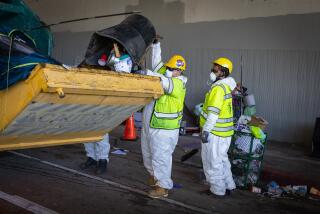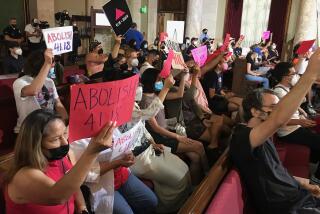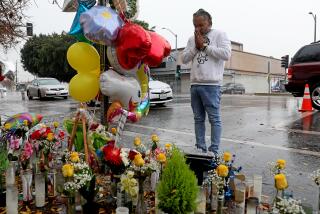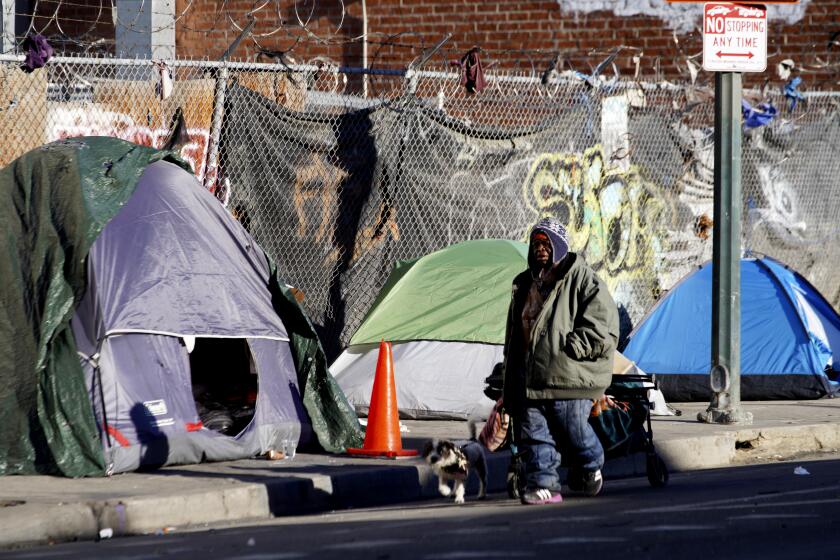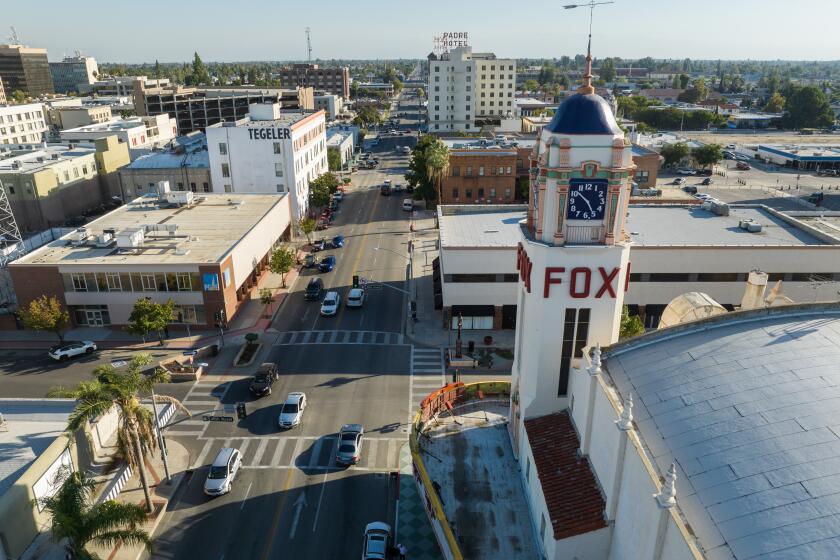L.A. won’t appeal ruling striking down ban on living in vehicles

WATCH VIDEO: A federal appeals court struck down L.A.’s ban on homeless people living in parked vehicles, ruling that it unfairly discriminates against poor people.
City Atty. Mike Feuer said Thursday he would not appeal a federal appeals court ruling that strikes down L.A.’s ban on living in vehicles, a key enforcement tool in the city’s efforts to deal with homelessness.
But Feuer said he would work with other city figures to write a new ordinance that “respects both the rights and needs of homeless individuals and protects the quality of life in our neighborhoods.”
“We need to make a break from the past … and commit ourselves to grappling with the issues that create homelessness in the first place,” Feuer said in a statement.
A three-judge panel of the U.S. 9th Circuit Court of Appeals decided unanimously Thursday that a city ordinance prohibiting people from living in vehicles was unconstitutionally vague.
That ruling followed a 9th Circuit decision in 2012 that prevented Los Angeles from confiscating and destroying the property homeless people leave temporarily on sidewalks.
Both ordinances had been enforced, along with other policies, to help the city cope with a homeless population estimated between 36,000 to 54,000 people.
“The City of Los Angeles has many options at its disposal to alleviate the plight and suffering of its homeless citizens,” Judge Harry Pregerson, a Carter appointee, wrote for the court. “Selectively preventing the homeless and the poor from using their vehicles for activities many other citizens also conduct in their cars should not be one of those options.”
Calling the Los Angeles law “broad and cryptic,” the court said the ban “criminalizes innocent behavior, making it impossible for citizens to know how to keep their conduct within the pale.”
Homelessness experts said the court decisions showed the city’s policies have failed.
“The city has adopted a negative anti-homeless agenda to make the problem less visible as opposed to making homeless people homes,” said retired UCLA law professor Gary Blasi, who has studied the city’s policies.
Mark Ryavec, head of the Venice Stakeholders Assn., said the decision reflected the experiences of judges “who don’t have to live with the problem” and should be appealed.
“It leaves people who are mentally ill, criminally inclined or lethal on your doorstep and removes any possibility the police can do anything about it,” said Ryavec, who said he led a neighborhood effort that cleared Venice streets of 250 cars and recreational vehicles where homeless people were living.
The numbers are starting to creep back up, he added.
Advocates for the homeless said Thursday’s ruling was likely to stem a rise in similar laws banning vehicle habitation, in California and elsewhere.
Dolan reported from San Francisco and Holland from Los Angeles.
More to Read
Start your day right
Sign up for Essential California for news, features and recommendations from the L.A. Times and beyond in your inbox six days a week.
You may occasionally receive promotional content from the Los Angeles Times.
